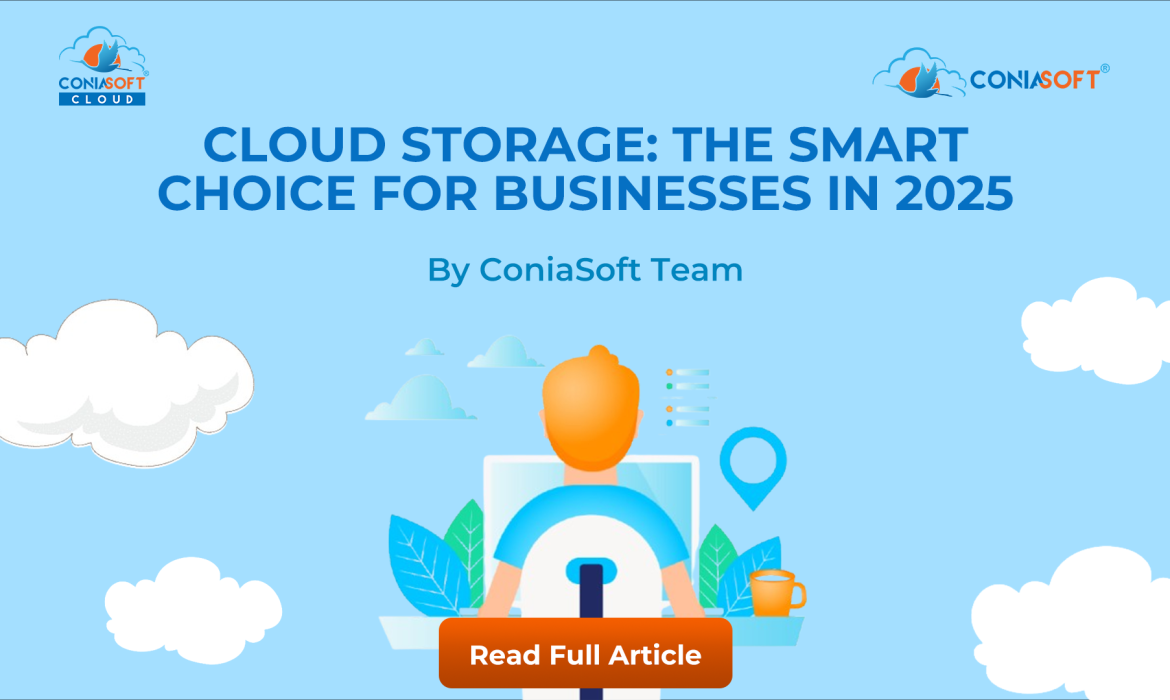Cloud Storage: The Smart Choice for Businesses in 2025
In today’s fast-paced digital world, businesses are generating and relying on more data than ever before. From customer information to operational analytics and critical documents, managing this ever-growing volume of data can be a daunting task. This is where cloud storage steps in as a game-changer, offering a flexible, secure, and cost-effective solution for organizations of all sizes.
What is Cloud Storage?
At its core, cloud storage means storing your digital data on a network of remote servers, rather than directly on your local devices or on-premises infrastructure. These servers are maintained and managed by a cloud provider (like AWS, Azure, or Google Cloud), and you access your data over the internet. Think of it like a massive, highly secure digital locker accessible from anywhere, anytime.
Why Cloud Storage is a Must-Have for Businesses in 2025
The benefits of cloud storage extend far beyond simple data backup. Here’s why businesses are increasingly embracing it:
1. Unmatched Scalability and Flexibility
One of the most compelling advantages of cloud storage is its scalability. Businesses can effortlessly scale their storage capacity up or down based on their needs, paying only for the resources they use. This eliminates the need for large upfront investments in hardware and allows companies to adapt quickly to changing demands, whether it’s a sudden surge in data or a period of slower growth. This flexibility is crucial for staying agile in a dynamic market.
2. Enhanced Security and Compliance
Data security is paramount, and cloud providers invest heavily in robust security measures that often surpass what individual businesses can achieve on their own. In 2025, we’re seeing an even greater emphasis on advanced security protocols like AI-driven threat detection, Zero Trust Architecture, and comprehensive encryption (both in transit and at rest). Cloud environments also facilitate compliance with various industry regulations (like GDPR and HIPAA) by offering tools for data governance, access controls, and auditing. While businesses still have a role in securing their data in the cloud, the underlying infrastructure security is managed by experts.
3. Significant Cost Efficiency
Moving to the cloud can lead to substantial cost savings. By eliminating the need for expensive physical servers, maintenance, and IT personnel dedicated to managing on-premises storage, businesses can significantly reduce their operational expenses. The pay-as-you-go model ensures that you only pay for the storage you consume, optimizing your budget. Furthermore, strategies like intelligent data tiering (automatically moving less frequently accessed data to cheaper storage) and AI-powered cost optimization tools are helping businesses reduce waste and maximize their cloud investment.
4. Improved Data Accessibility and Collaboration
Cloud storage empowers employees to access files and collaborate seamlessly from any location, on any device, as long as they have an internet connection. This is a game-changer for remote and hybrid work models, boosting productivity and fostering better teamwork across geographically dispersed teams. Real-time synchronization ensures everyone is working on the latest version of a document, eliminating version control headaches.
5. Robust Disaster Recovery and Business Continuity
Data loss can be catastrophic for any business. Cloud storage significantly enhances disaster recovery capabilities by automatically backing up data across multiple, geographically dispersed data centers. In the event of a localized outage, cyberattack, or natural disaster, businesses can quickly recover their data and resume operations with minimal downtime, ensuring business continuity.
The Rise of Hybrid Cloud Storage
While public cloud storage offers immense benefits, many organizations are opting for a hybrid cloud storage strategy. This approach combines the best of both worlds: keeping sensitive or regulated data on-premises or in a private cloud, while leveraging the public cloud for less sensitive, scalable workloads. This provides organizations with greater control over critical data while still enjoying the scalability and cost-efficiency of public cloud services. The integration of public and private environments enables a flexible and optimized approach to data management.
Looking Ahead to the Future
As we move further into 2025, cloud storage will continue to evolve. Expect to see even more sophisticated AI and Machine Learning capabilities for enhanced security and cost optimization, greater emphasis on sustainability with carbon-neutral data centers, and the continued maturation of multi-cloud and hybrid cloud strategies. For businesses looking to thrive in the digital age, embracing cloud storage isn’t just an option—it’s a strategic imperative.

























